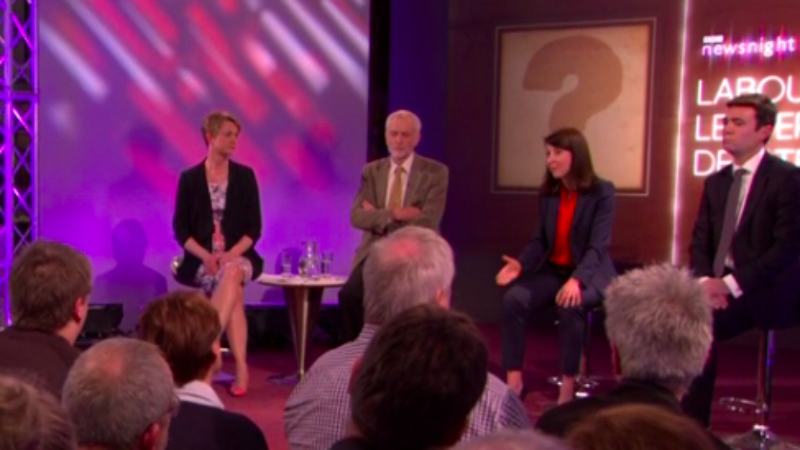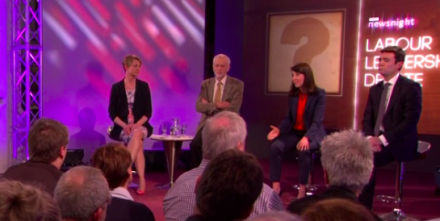

Voting in Labour’s leadership contest closes at Noon today. It’s been a long and difficult summer for most of us. We had to go straight from coming to terms with our devastating electoral defeat into deciding who we trust to lead us to victory in five years time. We had no time for a proper reckoning, no time for an analysis of what went wrong and no time to come to terms with the effect the first majority Conservative government since 1997 would have on the Labour Party and the country as a whole.
Each of the campaigns themselves have had moments and missteps which I am sure we will all dissect endlessly once it’s all over, but for know I wanted to look at the process itself – which has hardly been uncontroversial – and think how and why that could and should have been different and what too has gone right.
The first thing to say is that the process has been far, far too long. Once again we have ceded the setting of the political weather to the Tories for a whole summer while we have talked to ourselves, about ourselves. We choose a government in three weeks. OK not from the standing start we had here, but even so, this torture has gone on for far too long. Next time, I implore the Party to cap the whole sorry affair at 6 weeks. Two weeks for nominations, two weeks for campaigning two weeks for balloting. Over.
The second thing to say is that the mechanics of the campaign have been unimaginative. The four contestants who got on the ballot have toured the country doing the same thing on different nights like a bizarre repertory theatre group. If it’s Thursday, it must be Stevenage. It was absolutely right for the candidates to get out to the country – and especially to those seat we had hoped to win but didn’t. But in the age of filmed hustings and social media, we didn’t need to deliver the same experience to each live audience. Instead, we should have thought more about how to vary the format of the hustings and think about how we could test the candidates in different settings and scenarios (you know, like the leader will be tested in real life).
Controversially, I am going to argue that the management of the registered supporters scheme has largely been a success. Tens of thousands of people have been brought into a closer relationship with the Labour Party which was the aim. That one campaign was better at doing this should be a lesson for others to learn from, not a cautionary tale against the process. Though there are probably questions to be asked about cut off dates, if we were to shorten the actual contest as I have suggested, this should be part of that conversation. But building support for the Labour Party should be a year round, ongoing activity. it should not be done just at times of internal elections.
Equally, I believe that the vetting process was – in the end – pretty robust. I am sure some got through who shouldn’t have – that is the way of these things. But a significant number of people who can be shown to not support the “aims and values” of the Labour Party were not accepted. That phrase is key. You may believe you share the values of the Labour Party, but have been rejected. The aim of the Labour Party is to be elected and therefore put those values into practice. If you campaigned against that happening (not just voted for another Party but actively campaigned against Labour) then you do not share that aim and cannot have signed that declaration in good faith.
Finally, the actual balloting could and should be moved much more online. Of course we need to have the option of a postal ballot available for those unable to use online resources, but this is an ever dwindling group. An online vote should be the default with other option available on request. This would be cheaper and simpler to manage.
None of this is to blame the party staff and our voluntary NEC. Exhausted and demoralised from a bruising general election campaign, they have worked tirelessly to immediately run a leadership campaign. We should do more to support them and should discuss the rules and process for the next leadership campaign before we come to it (without such discussion either being – or being seen as – part of any move to oust a sitting leader). Processes work when they are well thought through, tested and tweaked. The heat of the campaign is never the best time to have to decide how things work and the heat of a campaign straight after the exhaustion of an election is the worst time at all to do so.
At the start of the campaigns what was being called for from left and right was a genuine debate about the future of the Labour Party. Some may have been surprised at the direction this has taken or the answers that have come back. There are criticisms to be made of some of the process, but we should be clear that whoever wins on Saturday, it won’t be possible to claim that the Party hasn’t had that debate.




More from LabourList
FBU launches ballot on strike action in Oxfordshire over cuts to fire service
Lord Doyle has whip suspended over links to sex offender
WATCH: LabourList Interviews from Fabian Society New Year Conference 2026